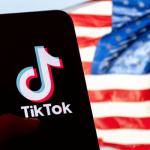The Supreme Court’s decision to allow the TikTok ban to move forward raises more questions than it answers.
While the concerns over national security are valid, this move sets a dangerous precedent for how governments can interfere with major social media platforms and the broader digital ecosystem... Continue reading here ▶
A National Security Concern or a Political Tool?
The government’s justification for the ban—fears over TikTok’s data collection and ties to China—reflects genuine concerns about user privacy and foreign influence.
However, critics argue that these concerns are not unique to TikTok. Many other apps, including US-based platforms, also collect and monetize user data extensively.
Singling out TikTok raises suspicions that this decision is more about geopolitics than actual data security.
The fact that TikTok is so popular, particularly among younger generations, adds another layer of complexity. For 170 million Americans, the app is not just a source of entertainment but a platform for expression and community.
Shutting it down could be seen as stifling free speech, especially when there is no clear evidence that data collected by TikTok has been misused.
Uncharted Territory: Enforcement Challenges
The practicalities of enforcing a ban on a major social media platform remain unclear. How will the government block access to TikTok?
What will happen to users who rely on the platform for their livelihoods, such as content creators and small businesses? The lack of a clear implementation plan leaves millions in limbo.
Moreover, this decision highlights a broader issue: should governments have the power to block platforms outright, even when those platforms do not violate domestic laws? This opens the door for future bans, which could be based on political motivations rather than security concerns.
An Alternative Solution: Regulation Over Bans
Instead of an outright ban, a better approach would be to increase regulations around data privacy for all platforms, regardless of their country of origin. By setting strict standards for data collection and storage, the government could address security concerns without resorting to censorship. Transparency and accountability should be the focus, not a blanket ban.
The Bigger Picture: A Precedent for the Future
This case sets a worrisome precedent. If the US can justify banning TikTok due to its foreign ties, what stops other governments from banning US-based platforms like Facebook, Instagram, or Twitter under similar pretenses? The digital world is interconnected, and such moves could fragment the internet further, leading to digital isolationism.
Conclusion
While the government’s concerns about TikTok’s data collection practices are legitimate, the decision to ban the platform outright is a flawed solution. It risks limiting free expression, disrupting lives and businesses, and setting a troubling example for other nations. A more balanced approach—focusing on regulation and transparency—would address security concerns without eroding the values of openness and free speech that are central to American democracy.


